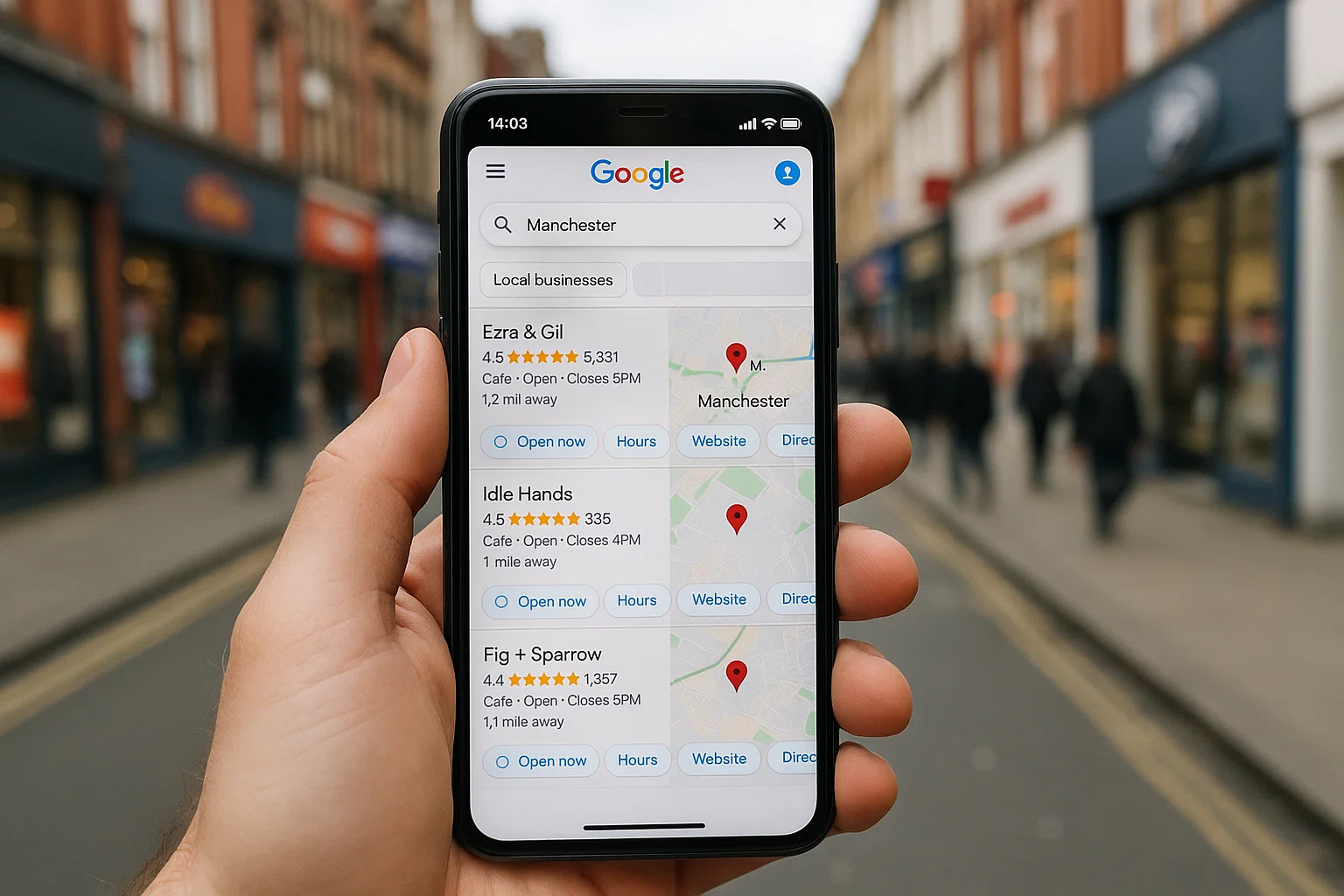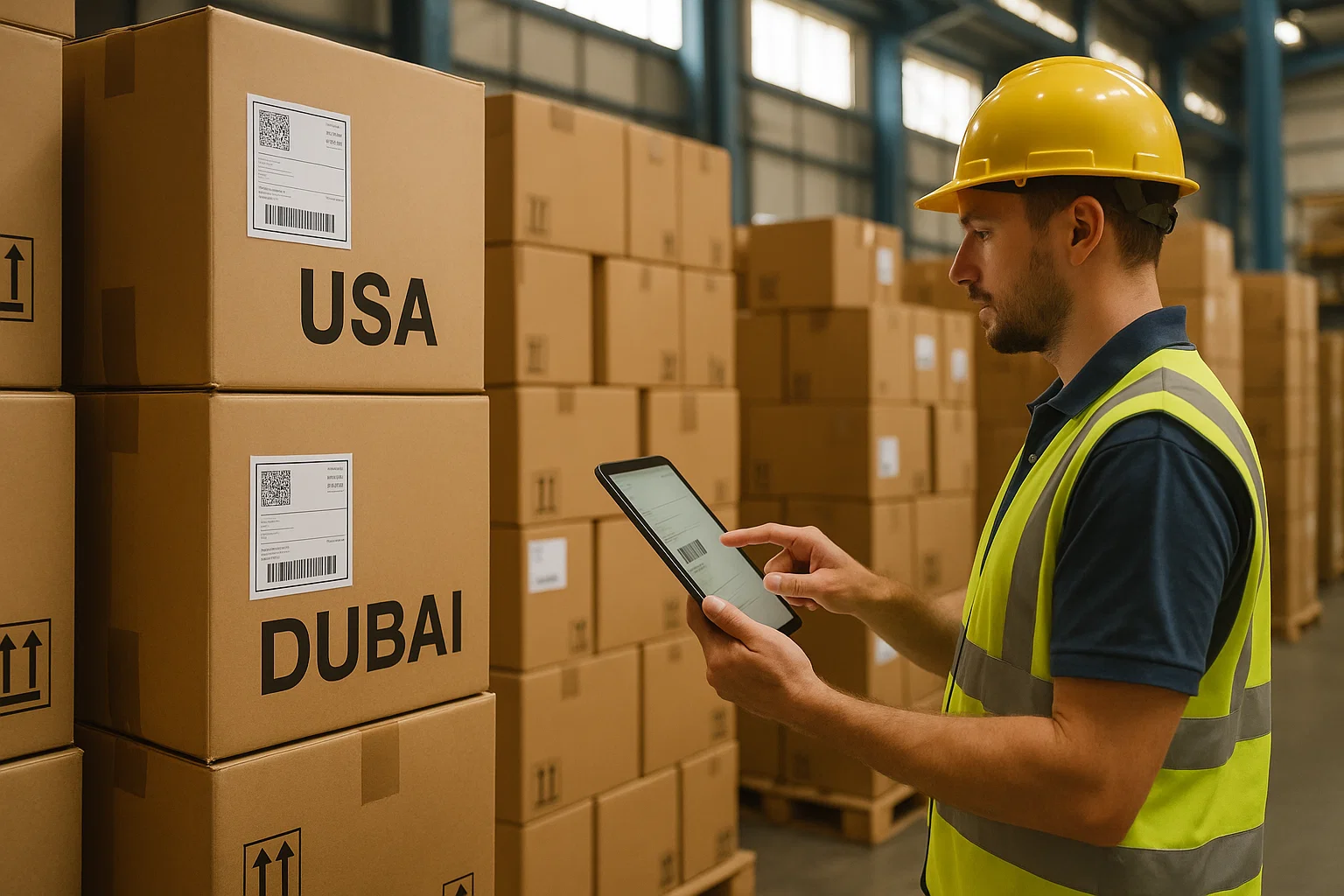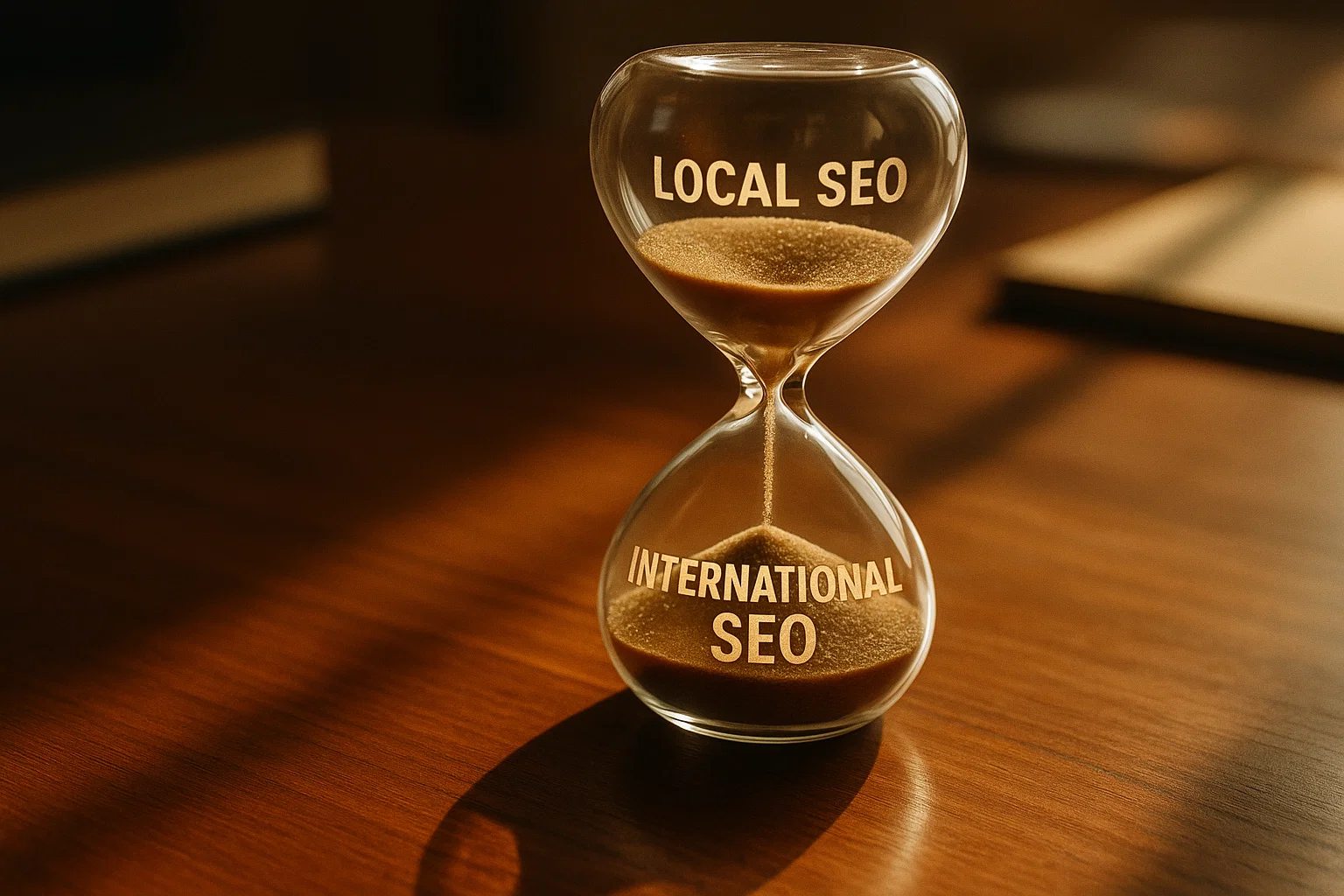For many businesses, the debate over international SEO vs local SEO is more relevant than ever. Deciding whether to prioritise local search visibility or global reach can influence everything from online growth to customer acquisition. Success in search engine optimisation depends on making the right choice at the right stage of your journey, aligning your SEO strategy with your broader business objectives.
If your company is ready to expand beyond the UK and into major international markets such as the USA or Dubai, you need to understand how search engines work, what makes them prioritise a given page, also how your site can be optimised to deliver both immediate and long-term results.

Defining Local SEO
Local SEO is the practice of helping your business rank for search queries in a defined geographic area. If a customer in Manchester searches for “best café near me” on Google Search, the results are shaped by location, reviews and business listings. Strong local SEO ensures you appear on maps, in directories and within search engine results pages that matter most to people nearby. Learn more about how small businesses can beat big brands through effective local SEO to see how local strategies deliver a competitive edge.
The features of local SEO are easy to see. It relies heavily on consistent contact details, good meta descriptions, meta tags and accurate information across other sites such as business directories. Combined with reviews and quality content, this consistency helps web crawlers include your site in Google’s index, boosting your online visibility. To go deeper into how local optimisation works, check out Moz’s comprehensive guide to Local SEO, which explains the key ranking factors and best practices for improving visibility in your area.
The benefit of this focus is clear: you capture the attention of people ready to buy, which leads to higher conversion rates. By tailoring content optimisation to your local audience, you can generate reliable organic traffic and build long-term trust.
Understanding International SEO
International SEO takes optimisation further, aiming to reach multiple regions and languages. This strategy involves technical optimisation, careful site structure and sometimes multilingual content. Expanding into places like the USA or Canada means adapting your site so that it resonates with local cultures while satisfying the technical requirements of search engines.
For example, international SEO may require hreflang tags so that search engines know which page to show for each region. It may also involve creating subdomains or country-specific directories. Without these steps, your pages risk competing with themselves, weakening your performance in search engine rankings.
The real benefit of international SEO lies in its scale. Instead of limiting your reach to a single area, you build authority across borders, attract more internet users and diversify your customer base. In fast-growing regions like Dubai or competitive spaces like the USA, this visibility can create long-term revenue streams.

Key Differences Between Local and International SEO
While both strategies fall under the wider discipline of search engine optimisation, there are significant differences in scope and execution.
Local SEO depends on factors like location relevance, reviews and structured data that highlights addresses and services. It is designed to match user intent where proximity plays a central role.
International SEO is broader and more technical. It prioritises content marketing, translation, localisation and site structure decisions. It also demands more investment in tools such as Google Search Console and Google Analytics to monitor how your site performs across regions. The ranking factors vary and without careful management, a lack of clarity can confuse both web crawlers and customers.
The benefits also differ. Local SEO produces fast, targeted results, while international SEO delivers slower but wider growth. Deciding between them means evaluating your short-term needs against your long-term goals.
Why Local SEO Should Often Come First
For many small and medium businesses, starting with local SEO makes sense. It is cost-effective, highly targeted and provides measurable improvements quickly. Appearing in local search engine results means more phone calls, foot traffic and leads from people in your immediate area.
Another benefit is that local SEO helps establish trust. Customers are more likely to choose a business with strong local reviews and visible local authority. These signals support user experience, which remains a key ranking factor for search engines.
By building this foundation, businesses can achieve steady website traffic and prepare for larger campaigns later. Once established, local SEO success can be scaled and extended to support international ambitions. See how smaller towns across the North West are investing in SEO to grow their visibility and competing with larger brands online.

When International SEO Deserves Priority
Some businesses are built for global reach from the start. E-commerce brands, technology providers and consultancies often need visibility beyond their home market. For these companies, international SEO is not optional it is critical.
Entering the USA requires adapting to a highly competitive environment, while success in Dubai depends on understanding cultural nuance and multilingual requirements. In both cases, simply translating content is not enough. You must consider search intent, adapt content optimisation and deliver an experience that aligns with the expectations of international audiences.
The investment is higher, but so is the reward. A strong global presence increases authority, builds brand recognition and ensures that your business is not dependent on a single region for growth.
Technical Foundations of International SEO
International SEO is built on technical precision. Beyond hreflang tags, businesses must ensure that their site structure allows clear navigation for both users and search engines. Without this clarity, broken links or duplicate content can damage rankings.
Tools such as Google Search Console highlight errors and track performance across countries. Monitoring search traffic, organic search and engagement on mobile devices is essential for ensuring that your website performs well in every region.
Technical optimisation also extends to speed and security. Global users expect fast-loading pages, regardless of their location. A poor experience on mobile can harm your visibility, as user experience is now weighted heavily in how SEO works across different devices.

The Role of Content in Both Strategies
In local SEO, content should reflect your community. Blogs about city events, partnerships with other local businesses and pages optimised for specific neighbourhoods all help drive relevance. This type of content also supports social media campaigns, which reinforce SEO success by creating brand awareness across social media sites.
In international SEO, the challenge is deeper, content must be adapted and not simply translated. The way customers in the USA search may differ from how audiences in the Middle East approach queries. By aligning with user intent, you ensure your content is relevant, engaging and trustworthy.
Integrating content marketing into your SEO plan also drives long-term results. High-quality, localised articles, case studies and resources encourage links from other sites, which improve authority and boost your search engine results.
Avoiding Common Mistakes
Businesses frequently make mistakes when approaching SEO. Jumping into global optimisation without a strong local base can dilute efforts. Equally, treating international SEO as a translation exercise often leads to poor performance.
On the local side, failing to maintain consistent listings or ignoring on page SEO damages trust with web crawlers and search engines. At the global level, overlooking technical optimisation such as hreflang tags or leaving broken links unresolved can block success.
Another mistake is ignoring how Google’s AI overviews and answer engines are evolving. These new formats pull directly from optimised content, making content optimisation more valuable than ever. Keeping pace with these developments helps protect your investment and ensures your site maintains authority.

Speed of Results: Local vs International
Local SEO often produces faster results. It leverages proximity as a strong ranking factor and typically involves less competition. Businesses can see improved visibility within weeks, particularly with accurate meta tags and regular reviews.
International SEO is slower, sometimes taking months before significant organic search traffic is achieved. This slower build is due to broader competition and the technical work required to support multiple regions. Despite the delay, the long-term impact can be significant, creating brand recognition across several countries at once.
Combining Local and International SEO
The strongest approach for many businesses is not choosing between international SEO and local SEO but combining the two. Building local authority provides stability, while international campaigns deliver scalability. Together, they create a balanced foundation for both immediate and future growth.
A hybrid strategy uses SEO tools to measure performance, while integrating social media marketing, paid search and content marketing for added reach. This mix supports strong user experience while ensuring your brand appears in results that matter most.

Bringing It All Together
The decision between international SEO vs local SEO depends on your goals, budget and growth stage. Local SEO provides faster wins and builds trust with nearby customers. International SEO demands more investment but unlocks global opportunities.
With careful planning, smart content optimisation and clear focus on business objectives, SEO can deliver both immediate wins and long-term scale. Whether you are looking for the best SEO agency, building authority with an in-house SEO manager, or partnering with experts to improve site structure and deliver increase online visibility, success is about balance.
Local SEO establishes your credibility. International SEO ensures you can compete on the world stage. When both are combined, your business is prepared for the future of search. If you’re new to optimisation, our simple guide explains exactly what SEO is and why your business needs it.



